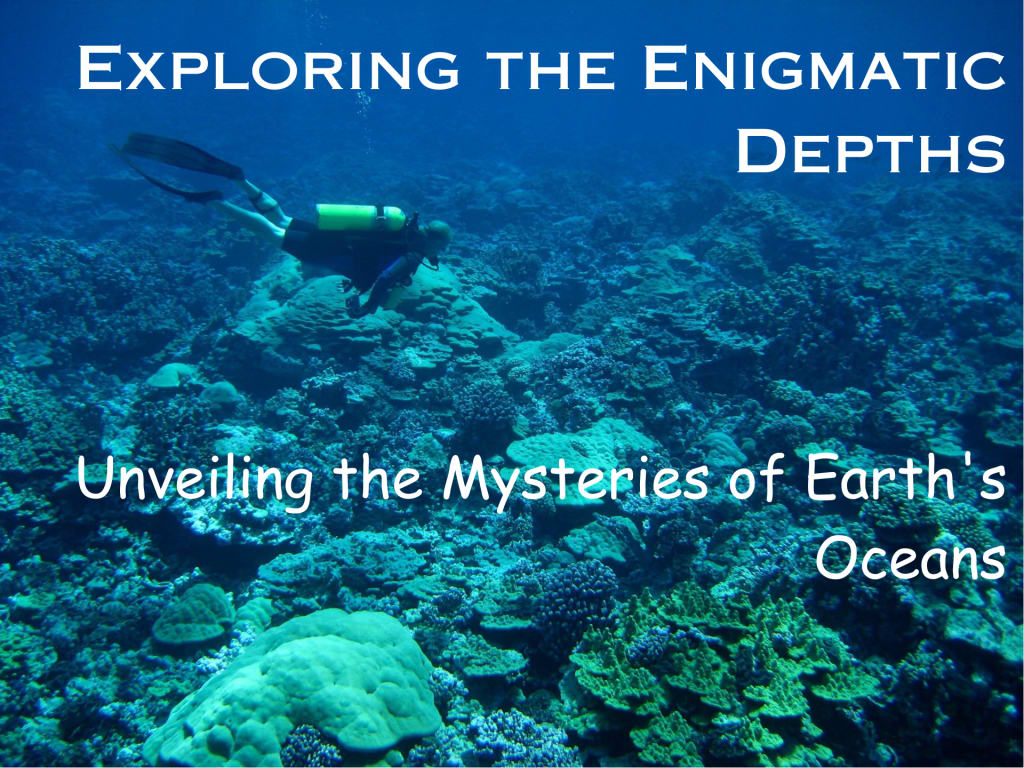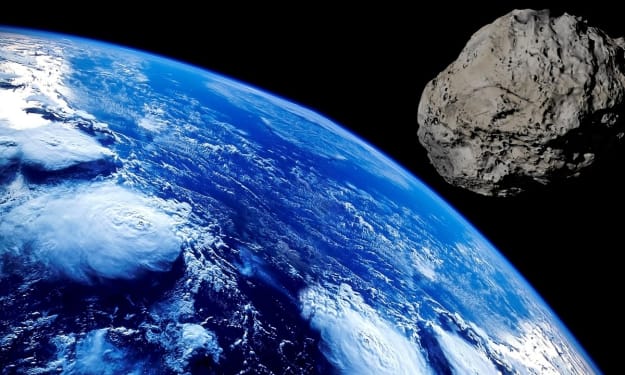Exploring the Enigmatic Depths
Unveiling the Mysteries of Earth's Oceans

Exploring the Enigmatic Depths: Unveiling the Mysteries of Earth's Oceans
Despite our technological advancements, there remains a vast expanse of our own planet that remains largely unexplored - our oceans. Astonishingly, over 80 percent of Earth's oceans remain uncharted territory. While we have made significant strides in science and understanding the world around us, our marine environments continue to be among the most vulnerable and misunderstood spaces in the universe. This article delves into the challenges of ocean exploration, the importance of marine protected areas, cutting-edge technologies, and recent discoveries that have revolutionized our understanding of life beneath the ocean's surface.
The Deep Ocean: A Formidable Challenge
The deep ocean presents formidable challenges for exploration. With its lack of visibility, freezing temperatures, and crushing pressure, it is a hostile environment that rivals space exploration. Sending manned missions to the ocean's depths is incredibly challenging, making it easier to explore outer space than the depths of our own seas. However, scientists have harnessed advanced satellite technologies to track ocean color and phytoplankton levels, offering valuable insights into the aquatic ecosystem's health and dynamics.
The Role of Phytoplankton: Bedrock of the Ocean Food Chain
Phytoplankton, microscopic plant-like organisms, play a crucial role in the ocean's food chain. They serve as the bedrock, sustaining life from the tiniest zooplankton to magnificent whales. Satellite technologies have allowed scientists to obtain clear images of the ocean, revealing important information about phytoplankton distribution and abundance. These data have opened new avenues for understanding marine ecosystems and the impact of human activities on the oceans.
Advancements in Ocean Exploration Technology
Ocean exploration technology has come a long way, enabling scientists to delve deeper into the ocean's secrets. Floats, drifters, and a fleet of underwater vehicles, including manned, remote-controlled, and autonomous ones, have revolutionized ocean exploration. Visionaries like James Cameron have ventured to the Mariana Trench, while other companies use a mix of technologies to uncover hidden underwater treasures, leading to the establishment of marine protected areas and the discovery of new species.
The Mystery of the Pacific Northwest Coast's Ocean Floor
Recently, scientists made a groundbreaking discovery beneath the Pacific Northwest Coast's ocean floor - a vast realm of life cut off from the world above. Microbes, thriving on chemical reactions with rocks and seawater, create a unique and mysterious ecosystem. The discovery of these chemosynthetic life forms challenges conventional notions of life's sustenance and pushes the boundaries of our understanding of life on Earth.
The Implications for Understanding Life Beyond Earth
The existence of life sustained by chemical reactions in the oceanic crust suggests that life may be more resilient and adaptable than previously thought. Such discoveries have significant implications for the search for extraterrestrial life on other planets with harsh surface conditions but potential subsurface habitats. The newfound microbial life redefines our understanding of life's boundaries and forces us to rethink the possibilities of life in the universe.
The Path Forward: Protecting Our Oceans and Expanding Exploration
As we explore and unravel the mysteries of our oceans, we face the challenges of funding and collecting detailed data. However, efforts by dedicated companies and researchers have led to the establishment of marine protected areas, laying the groundwork for a sustainable ocean ecosystem. Ongoing ocean exploration can provide the evidence needed to safeguard more of our oceans and achieve the ambitious 30 by 30 goal - protecting 30 percent of our oceans by 2030.
In Conclusion, our oceans hold a world of wonders yet to be discovered. Ocean exploration is not only crucial for understanding our planet but also has implications for our quest to uncover life beyond Earth. As we continue to explore and protect our oceans, we embark on an exciting journey of knowledge and discovery. Together, with cutting-edge technology, passion for exploration, and a commitment to conservation, we can reveal the secrets of our underwater world and ensure its preservation for future generations. NASA's involvement in ocean exploration further cements the interconnectedness of our planet and the cosmos, promising a future of endless possibilities for discovery and understanding.
Share your thoughts in the comments below. If you found this information intriguing, feel free to like and share this article with your friends. To satisfy your curiosity further, click on my profile to check out other articles and stay informed by my side.
About the Creator
Maureen Ejikeme
I'm a writer bringing you the most information on Mystery, Facts, News and Psychology.
Enjoyed the story? Support the Creator.
Subscribe for free to receive all their stories in your feed. You could also pledge your support or give them a one-off tip, letting them know you appreciate their work.






Comments (1)
Ok wow, the explorers should be careful while invading the oceans territory, as the waters can be angry